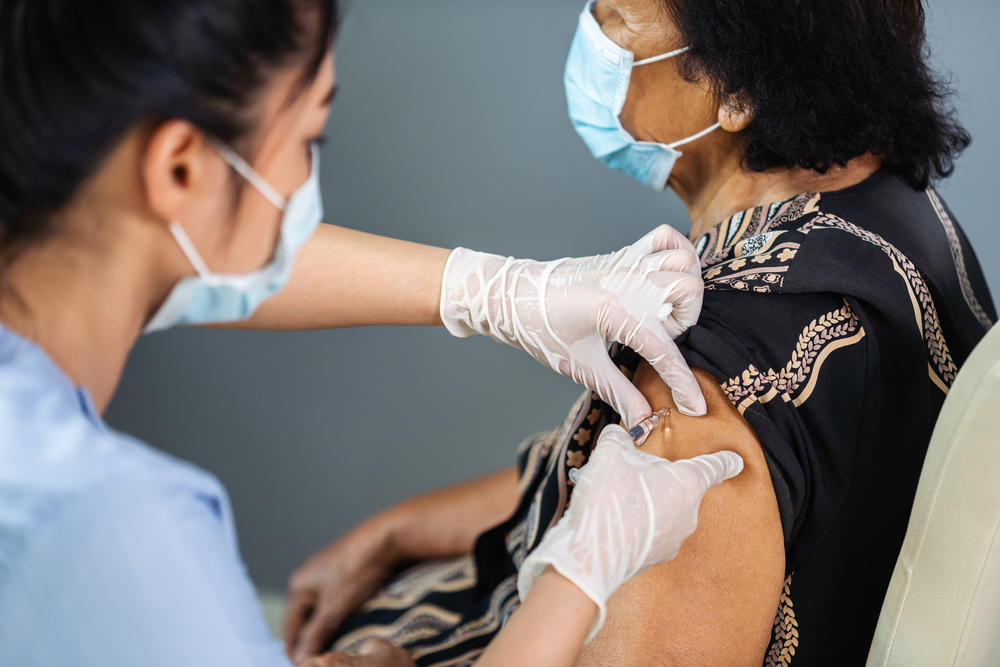As COVID-19 vaccine eligibility expands and the nation races to administer vaccines, the Georgia Department of Public Health and other healthcare agencies and entities are asking or being asked by boards of directors of community associations to use association clubhouses and other common areas for vaccine administration. Particularly in communities with a significant 65+ population, utilizing the clubhouse affords convenient access and a comfortable location for vaccinations.
Using clubhouses for vaccine administration is the purest example of fostering community in a community association.
In this blog post, our HOA attorneys address issues attendant with a community association permitting a clubhouse or other common area to be used for administering the vaccine.
What Are the Key Coverage Considerations for Vaccine Administration on Common Area?
When opening common areas during the ongoing pandemic, it is critical for each board of directors to consider the risk of its association being sued by a person who claims that he or she contracted the virus on common area.
As is the situation with the customary use of common areas, allowing the use of a clubhouse or other common area by the Department of Public Health or other provider to administer the vaccine is not without a risk that an association could be sued.
However, the nature of a potential claim for COVID transmission is significantly different than one for an injury from or during vaccine administration on the common areas.
Claims for COVID Transmission vs. Claims for Vaccine Administration
At the onset of the pandemic and throughout the last year, the analysis of claims resulting from the operation and use of recreational facilities centered on the spread of the virus contracted while using the common areas and the risk of transmission occurring because an association failed to adequately perform sanitization and enforce social distancing. For such a claim, it was understood that associations are responsible for and in control of whether the common areas were adequately sanitized and whether the association was complying with government orders.
The analysis of potential claims from vaccination administration on association common areas raise different concerns. The main risks are likely an adverse reaction to the vaccine and a slip/trip and fall on the property. Regardless of the location of a vaccine administration site — a public building, a pharmacy, a doctors’ office, or common area of a community association — the nature of the potential claims involving the administration of the vaccine are the same.
As with claims that the virus was contracted on common area, insurers will not likely confirm in advance if a claim for an adverse reaction to the vaccine is a covered claim. That would be determined based on the facts of each claim.
While many insurers may neither give permission nor prohibit the use of association common areas for the administration of the vaccine, coverage for an injection-related claim likely may be determined based on whether use of the common area as a vaccination site makes the common area a “medical facility” during the time the vaccine is being administered.
If an insurer determines that the common area is a “medical facility” when being used as a vaccination site, it will likely deny coverage for the claim as medical facilities are not covered by community association policies.
A claim for an adverse reaction is unlike claims for common area transmission of the virus because associations do not control the activity being conducted on the common areas when it is used for vaccine administration. Associations are not manufacturing the vaccine and the administration should be performed by the health professionals working for the Department of Public Health or other authorized organization.
Also, a claim against an association for negligent administration of the vaccine and/or an allergic reaction to the vaccine would be without merit because an injured party would have to prove the condition of the common areas caused the claim.
Will an insurer pay the cost of defending a claim for negligent administration or adverse reaction to the vaccine?
There is no absolute answer.
Unlike claims for contracting the virus on common area where exclusions in the policy for bodily injury related to disease probably also exclude payment of cost of defense, a claim for negligent administration of the vaccine by a third party is different. It is not a claim that a person contracted a disease on common area. It is a claim that a person got hurt on the common area from the actions of another person.
Consider a situation where someone punches another person in the jaw on common area and the association gets sued because of the conduct of the person who threw the punch. An insurer should defend that claim. Likewise, an insurer may pay the cost of defending a claim for bodily injury on common area occasioned by the action of a third party administering the vaccine.
Will an insurer pay the cost of defending a claim for a slip and fall at a vaccine administration event on association common area?
Every time there is a gathering on common area, there is a risk of bodily injury, typically from a slip/trip and fall.
A community association is liable for injuries on common area only when the condition of the property leads to the injury, as is any owner of property that is frequented by persons other than the owner.
A property owner is obligated to inspect the property to keep it reasonably safe and post warnings of a condition that could cause an injury. When someone is injured on common area, the claim for bodily injury is covered by an association’s general liability policy without consideration of the reason the injured person was on the common area.
So, it should not matter whether someone is injured on common area during a vaccination event, for example, while walking to or from the vaccination event. Insurers may not handle this type of claim any differently than any other slip/trip and fall claim just because the injury occurred during a vaccination administration event.
Checklist for Vaccine Administration on Common Area
Our community association attorneys generally recommend boards of directors take the following steps if the association’s clubhouse or other common area will be used for the administration of vaccines:
- Adopt a written board resolution authorizing the use of the common area for the vaccine administration event.
- Notify the association’s insurance agent in writing of the event.
- Enforce all existing community rules and regulations, including COVID-related rules like mask mandates.
- Forward any written agreement or other document provided to the association for signature by the vaccine provider to the association’s attorney for review prior to execution.
- Coordinate with the County Health officials.
- Ensure the vaccine provider is authorized to administer the vaccine and that the provider’s required professional licenses are currently valid.
- Inspect the parking lot and walkways to the clubhouse or other designated vaccine area and remove or repair any trip hazards.
- Acquaint the staff from the Department of Public Health or other organization holding the vaccine event and their volunteers with the layout of the vaccination administration area including entrances and exits.
- Direct persons to entrances for handicap access.
- Ensure the layout of the vaccine administration area is spaced to allow easy maneuvering, including wheelchair and walker or other mobility-aid accessibility.
- Ensure all informational and warning signs are posted in accordance with Georgia’s COVID-19 Pandemic Business Safety Act and Governor Kemp’s Executive Orders.
- Require every person coming into the clubhouse or other vaccine administration area to sign a release and waiver for claims for bodily injury occurring on common area going to and from and while on association common area.
- Arrange for cleaning of the vaccine area at the conclusion of the vaccine event.
May Residents Serve as Volunteers for Vaccine Administration?
The community association attorneys at NowackHoward understand that residents may wish to assist with registration, scribing, and other important administrative functions for vaccination administration events. However, since the association is merely providing space for the event, residents should be instructed to volunteer by contacting the Department of Public Health or other organization holding the event.
Volunteers will generally be required to register online, undergo a screening process, and sign the Georgia Department of Public Health Emergency Volunteer Agreement. More information about Georgia’s health and medical volunteer programs is available on the Georgia Responds website.
Who Should Receive Vaccines on Association Common Area?
Finally, our HOA attorneys recommend community associations allow only residents and family members of residents to receive the vaccination on association common area. Likewise, left-over doses should be made available only to residents and family members of residents.
Allowing others may make the common area a place of public accommodation under the Americans With Disabilities Act. Contact your community association attorney to discuss this issue in more detail.
Contact the HOA Attorneys at NowackHoward to Help Advise Your Board of Directors
At NowackHoward, we understand the vital importance of associations cooperating in the rollout of vaccine administration and hope this message is helpful for community association boards of directors understanding of some of the issues pertinent to whether an association’s clubhouse or other common area may serve as a vaccination site.
As always on our blog, this post is general information, and it is not legal advice. Your board of directors should contact your association’s attorney for legal advice before making any decision on using association common areas as a vaccination site and to discuss the specific details and issues for your community.
At NowackHoward, we represent condominium associations and HOAs throughout Georgia. To learn more about our practice or how we can help guide your community, contact us at (770)-863-8900 or email us at info@nowackhoward.com.
©2021 NowackHoward, LLC. Unless otherwise stated, all contents of this website are the sole property of NowackHoward, LLC and may not be reproduced in whole or in part without express written consent.


